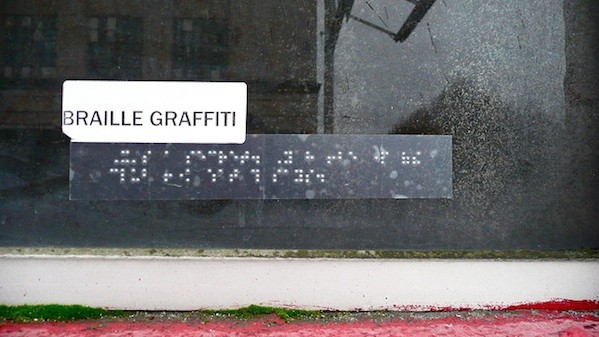Doing Better By Generation Y

When Lauren Sanders concentrates on her childhood memories, she can recall “the fuzzy sounds of dial-up Internet and the generic female voice cheerfully state, ‘You’ve Got Mail.’” Born in 1990, Lauren is an official member of “Generation Y,” defined by Wikipedia as “marked by an increased use and familiarity with communications, media, and digital technologies.” She notes that’s she’s grown up “around computers and other forms of technology” so, when she registered for my class, “This Is Your Brain on the Internet,” she was sure she “knew everything about the World Wide Web, and its use and purposes; I am constantly sending email, browsing through Facebook pages, and reading The New York Times (online, of course).” But as she writes in a recent blog posting filled with whimsy and wry with regret, it was only while taking this college class that she found out “time and time again” her “lack of understanding of the Internet and its current uses.”
As her teacher, I assure you that Lauren knows more about the Internet than most students—or most professors. She’s a star student and her presentations were excellent in this experimental, daunting, peer-led, peer-assessed, peer-designed course where even the midterm was mounted as an open-web style “innovation challenge.” She came through with flying colors.
Yet, her eloquent blog post about her experience taking my class underscores the powerful point that “use” does not constitute “understanding.”
I, for example, know how to use my car but please don’t ask me to talk about pistons (I’m not even sure cars have pistons anymore). The fact is, being born in 1990 does not make you any more or less likely to understand what goes on under the digital hood. If you don’t believe me, ask Lauren!
In some ways, Gen Y students get the short end of all the sticks. Pundits blame them for being “the dumbest generation,” for not being worthy of “trust,” for being solipsistic and self-centered, all because they happened to have grown up with the Internet. Yet what have these educators done to take this powerful medium of communication, information, and collaboration into account as they plan what they teach and how?
Studies now put Internet use by teens at over 30 hours a week. Judging from what my students tell me, for most of their educations their teachers spent exactly zero hours a week discussing the Internet, analyzing its distinctive features, its attributes and affordances.
In their future work-life, they will be expected to be exceptionally gifted technologically. They are Gen Y’ers after all. Yet most of their schools—K-20—are still structured as if the Internet and World Wide Web haven’t been invented yet.
It makes me mad, the scapegoating of youth without taking responsibility for improving the education they receive. If we blame them for being “alone together,” absorbed and obsessed by digital media, and therefore living murkily in “the shallows,” shouldn’t we also be making sure that we’re reforming our curriculum to give them some aids to liberate them from those putatively grim miasmas?
Personally, I won’t be happy until the finger-shakers and hand-wringers stop complaining and do something constructive to teach students today how to maximize their experiences online. That of course is what the MacArthur Foundation's Digital Media and Learning Initiative is about. And I'm excited that we are putting increasing emphasis not just on informal learning but on formal education, too. In our classrooms, we need to concentrate on not just using digital media there but in thinking about it, summoning up deep, analytical, critical thinking about the why and how the World Wide Web exists and what that means in our lives and in our future.
Generation Y may not be as well-versed in the cognitive, collaborative, and community aspects of the Internet as is often assumed but they are really the last generation for whom there will be a “before” and an “after.”
Lauren can remember dial-up if she thinks hard about it. Her younger siblings won’t be able to. They won’t believe her when she tells them that she can remember when suddenly high school students were allowed to join Facebook. Generation Y is our last generation of “native informants” who remember the magnitude of the change that has reshaped our world.
As she concludes, “To ignore the Internet, to view it as static and distant is misleading, and to ignore its potential is ignorance at its best. Overall, we must adapt to the changes that are occurring online, for these changes are affecting the ways in which we live our offline lives.” Exactly.
Banner image credit: tetraconz http://www.flickr.com/photos/lmmnfrsh/2191286275/
Comments